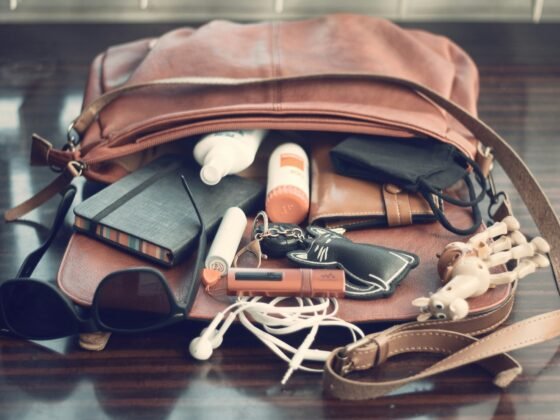Traveling abroad with an infant can be an exciting experience, but it also comes with health risks. Different environments, foods, and climates can affect your baby’s well-being when traveling abroad.
Parents need to prepare for potential health issues and understand how to protect their little ones. Knowing what to expect and how to mitigate health risks is essential for a smooth trip.
In this guide, we will cover key health concerns and provide tips to keep your infant safe while traveling abroad. You can keep your child happy and healthy throughout your trip by taking preventative measures.
Vaccinations and Health Prevention Strategies
Verify that your child has received all necessary vaccinations before departing for a foreign country. Check with your pediatrician about any additional vaccinations specific to your destination.
The Cleveland Clinic states that newborns receive the HepB vaccine within 24 hours of birth as part of a three-dose series. RSV antibody is given within one week if born during RSV season and specific conditions. At two months, babies get vaccines for HepB, DTaP, Hib, IPV, rotavirus, PCV, and more to ensure protection.
Some countries may have unique health risks, such as diseases that aren’t common in your home country. Consult with your healthcare provider to discuss any necessary immunizations. Vaccines can significantly reduce the chances of your infant contracting a serious illness.
Additionally, make sure you have all the necessary travel health supplies, including medications and first-aid kits. Research local health risks in your destination country to plan for any precautions required for your baby.
Water and Food Safety for Infants
When traveling abroad, food and water safety is a top priority for your baby’s health. Always choose bottled water since tap water may not be safe to consume in many places.
Our World in Data notes that only 75% of the global population has access to safely managed drinking water sources. This means one in four people lacks access to safe drinking water worldwide. With nearly 2 billion people affected, the water crisis remains a major global challenge needing urgent attention and action.
Ensure that your infant’s food is prepared with clean water, especially if they are eating solids. When dining out, choose restaurants with high sanitation standards and avoid street food. Be cautious about fruits and vegetables, as they may not be properly washed.
Contaminated food or water can lead to stomach illnesses that can severely affect your infant. Carry your own baby food and formula to avoid contamination risks.
Baby Formula Safety
When it comes to baby formula, there are concerns about its safety, especially for premature infants. A higher prevalence of necrotizing enterocolitis (NEC) has been linked to some baby formula brands.
Premature babies are the main victims of NEC, a dangerous gastrointestinal disorder that can cause potentially fatal inflammation.
According to TorHoerman Law, many parents have filed lawsuits against formula manufacturers for failing to warn about product risks. Lawsuits claim that poor quality measures at manufacturing plants lead to formula contamination, raising NEC risks. Families affected by NEC are seeking compensation for the health consequences their children have faced.
A June 2024 update from ConsumerNotice.org reports that Judge Pallmeyer released an order for the first bellwether test trial in May 2025. Despite this, an Illinois jury awarded $60 million to a mother who lost her child.
This verdict highlights the increasing urgency and impact of NEC lawsuits within the ongoing multidistrict litigation (MDL).
When traveling abroad, it is important to consider the risks of the formula you choose. Staying updated about formula safety ensures you avoid products that might increase the risk of NEC.
Air Quality and Environmental Factors
Infants are particularly vulnerable to changes in air quality and environmental conditions. Air pollution is a concern in some international destinations, especially in large cities.
Statista mentions that air pollution is now a bigger killer than smoking, ranking as the second-largest global death risk. Each day, 2,000 children under five die due to the effects of air pollution. With most people exposed to hazardous air, immediate action is essential to avert more loss of life globally.
High pollution levels can exacerbate newborns’ respiratory difficulties, potentially leading to sickness. If you are traveling to a region with poor air quality, consider remaining indoors during peak pollution hours. Always check local air quality reports and limit outdoor exposure on days with heavy pollution.
In addition, changes in climate, such as extreme heat or cold, can also affect your baby’s health. Dress your infant appropriately for the weather and make sure they stay hydrated.
Insect Bites and Mosquito-Borne Diseases
Insect bites, particularly from mosquitoes, pose health risks for infants, especially in tropical regions. Mosquitoes carry diseases like malaria, dengue, and Zika, which can be dangerous for babies.
To protect your infant, use mosquito nets while sleeping, particularly in high-risk areas. Apply baby-safe insect repellent to exposed skin, but avoid the face and hands. To lessen your baby’s exposure to pests, dress them in long-sleeved, light clothing.
Recognize when mosquitoes are most active, which is usually around the time of sunrise and sunset. If traveling to regions known for mosquito-borne diseases, consult your doctor for preventive measures and medications for your baby.
Medical Care and Emergency Preparedness
Before going, look into healthcare services in your target country in case of an emergency. In some areas, medical care may be limited or of lower quality than at home.
Know where the nearest hospital or clinic is located and ensure it can accommodate infant care. Carry a list of important medications, including your baby’s prescriptions, and keep them in their original packaging.
It’s also helpful to have a travel health insurance policy that covers your infant for emergencies abroad. Keep your pediatrician’s contact information handy and know how to reach them in case you need medical advice during your trip.
FAQs
How can I prepare for unexpected health issues during travel?
Pack extra medications and medical supplies in case of health issues. Know the nearest healthcare facilities at your destination, including pediatric services. Keep a list of any known health risks specific to your travel destination to be better prepared for any unexpected medical situations.
Is it safe to eat from street food vendors?
Street food can be risky due to inconsistent sanitation practices. Choose reputable restaurants with high hygiene standards instead. Street food may carry risks like bacterial contamination, which is especially harmful to infants and young children.
How do I manage formula feeding on long flights?
On long flights, pack enough formula to last the journey and ensure you have clean water. Use portable sterilizing equipment for bottles and formula containers. Consider bringing ready-to-feed formula to avoid the hassle of mixing or reheating formula on the plane, ensuring convenience and safety.
What should I do if the air quality is poor during travel?
Monitor local air quality data and modify your trip plans to reduce your exposure to polluted regions. Keep your baby inside during peak pollution times, usually in the morning or evening. When indoors, consider using an air purifier to help maintain clean air in your accommodation.
Are there vaccines to prevent mosquito-borne diseases for infants?
Some vaccines, such as the Japanese encephalitis vaccine, may be prescribed based on your location. Consult with your pediatrician for advice on immunizations to protect your baby from mosquito-borne diseases. Preventive medications may also be available for conditions like malaria, so discuss options before traveling.
Does my infant need travel health insurance?
Travel health insurance is a good idea to cover unexpected medical expenses for your baby. Look for plans that offer coverage for infant care, including emergency services and medical evacuation. Always check if the plan includes pediatric care abroad to ensure your baby’s health is covered in case of illness.
Traveling abroad with an infant takes careful planning to minimize health risks. Vaccinations and preventive measures are critical for your baby’s safety during overseas travel. Having access to clean water and secure food sources when traveling overseas is also critical. Being aware of environmental factors like air pollution can prevent health issues.
Always be prepared for medical emergencies, especially when traveling to unfamiliar locations. Research local healthcare options and keep emergency contacts handy. With proper preparation and guidance from healthcare providers, parents can confidently travel abroad, knowing their baby’s well-being is protected throughout the journey.
Image: Pecels, RDNE Stock Project












